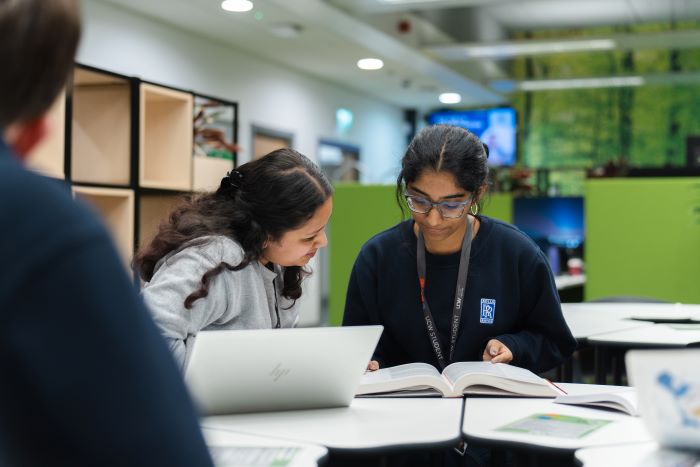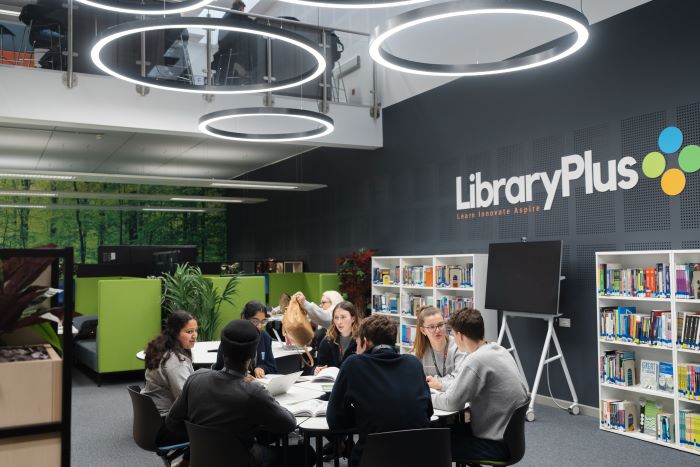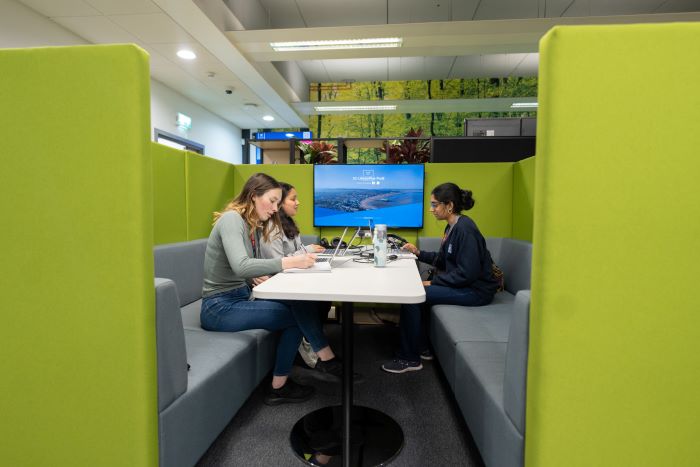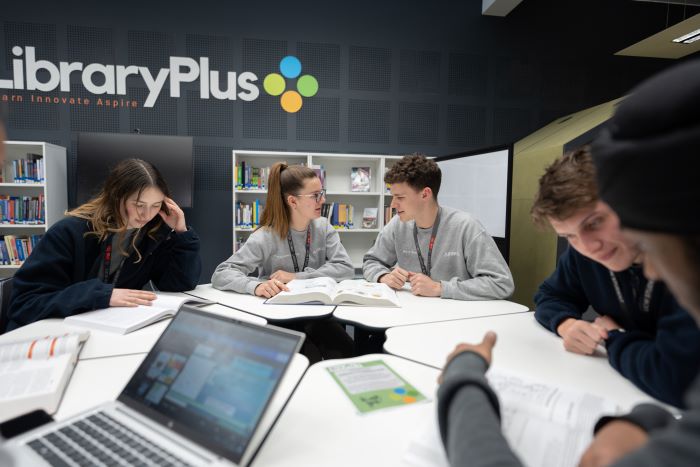
LIBRARYPLUS
At Weston College we believe that the student comes first, so we are proud to provide a number of ways in which learners can receive support for their studies.
LibraryPlus provides resources, support and information to all students at all of our campuses, offering a friendly and informative service and modern facilities in which to study.
As a Weston College student, you will have access to over 30,000 texts including online databases, eBooks and eJournals, as well as access to technology which includes laptops, iPads, cameras and Mac computers. There is also internet access for learners wishing to use their own devices, with charging facilities available when needed.
Independent study and research will be an important part of your course, and the wide variety of resources and study spaces will enable you to learn in an environment that suits you, with areas to work as a group and also quiet study areas for individual learning.
Our Learning Mentor teams provide workshops on personal and social development, British values, study skills and employability at both FE and HE level, raising your awareness and knowledge in these areas and ensuring progression. We also provide bookable 1:1 support sessions for students to provide information, advice and guidance on I.T. basics and Office365, support with assignments, study skills and accessing our online resource to ensure that you feel confident and achieve your full potential.
We have a dedicated SharePoint site, which will give you full information and links to all of our resources and service - click here to access this.
@westoncollege Check out our Library+ team’s top tips for revision and how to stay stress free during exam season 🙌 good luck to everyone sitting exams 👏👏
♬ Fresh Start - Phello
EXAM TIPS AND GUIDANCE
Exams! Don’t panic. Think about what you can achieve, not what you can’t. Positive thinking is important!
Find a quiet place to study and keep this area for ‘revision only’.
Make sure your desk is well lit and clutter free.
Have everything you need to do your revision to hand before you start.
Keep background noise to a minimum.
Tell everyone that may interrupt you that you are studying.
Avoid studying in an area where there will be distractions (like television!)
Take regular breaks – it’s suggested one-hour stints are conducive to productive learning.
Look after yourself – sleep well, eat well and stay hydrated.
Draw up a revision plan for each week. Fill in any regular commitments you have first and the dates of your examinations.
It’s recommended that you start your revision at least six weeks before your exams begin. It is helpful to look at your exam dates and work backwards to the first date you intend to start revising.
List all your exam subjects and the amount of time you think you will need for each one. It is unlikely that the amounts will be equal. Many people find it advisable to allocate more time to the subject or topics they find the most difficult.
Use revision checklists or syllabuses for each subject as a starting point. Look at what you need to know and try to identify any gaps in your knowledge.
Divide your time for each subject into topics based on the units in the revision checklist or syllabus, and make sure you allow enough time for each one.
There is no ‘right way’ to revise - different methods suit different brains. In practice, most students find that mixing techniques suits the varied nature of the subjects being revised.
Set SMART objectives (specific, measurable, achievable, realistic, targets) for your revision schedule – don’t try and do too much where you can’t complete it and get stressed.
Save valuable time by asking your teacher about recommended revision guides/websites.
Stick to your schedule as much as possible – a day off puts added pressure for future days’ work.
Rewrite your notes - writing again and again helps ingrain the information.
Compose key ideas and facts on to cue cards to use as prompts.
Write key facts/notes out in large print and display these around the house where you will see them, e.g. bathroom mirror.
Create snap shots of a subject through diagrams, such as a mind map or flow chart.
Devise mnemonics as prompts. Initial letters to make a word that helps you remember key points. For example, a rhyme such as Richard Of York Gave Battle In Vain to remember the order of colours in the rainbow.
Record yourself reading notes to listen to.
Get a friend to test you, e.g. create quizzes for one another.
Explain subjects to someone who has no background knowledge of the area; they will thus ask questions. Explaining to someone else out loud helps your own learning.
Work through past question papers – and use a watch to time them so that you can practise timing your answers.
Attend any revision classes that are running and get others advice on revision methods.
Think positively! Keep the exam in context – even if you do badly, there will be other options open to you.
Find out what is involved in the exam.
Find out where and when it will take place.
Find out how much time is allowed.
Find out how many questions you need to answer.
Eat sensibly – your brain cells need energy to function well. Make sure you drink plenty of water to avoid becoming dehydrated. Dehydration makes you tired and reduces concentration.
Check you have the correct equipment with you before you leave the house (pens pencils, ruler, scientific calculator, etc).
Take a watch or clock so that you can time your answers and stick to it.
Leave for the exam in plenty of time.
Look through the paper first and select the questions that will best enable you to demonstrate your knowledge to the examiner.
Look at the marks available and read the questions carefully, following instructions given in the paper (e.g. to show all workings, word limits etc.).
Use the information provided on the paper (the answer’s often nearly all there).
Pace yourself and allow enough time to answer all the required questions.
Write as neatly as possible to help the examiner to mark your work. Marking untidy writing is difficult.
For longer answers, take a few minutes before you begin to produce a structured plan of what you are going to include in each section.
Allow yourself ten minutes at the end to read through your answers and correct any mistakes.
Cross out anything you do not want the examiner to read (e.g. an earlier answer to a question).
CHECK OUT OUR FACILITIES





